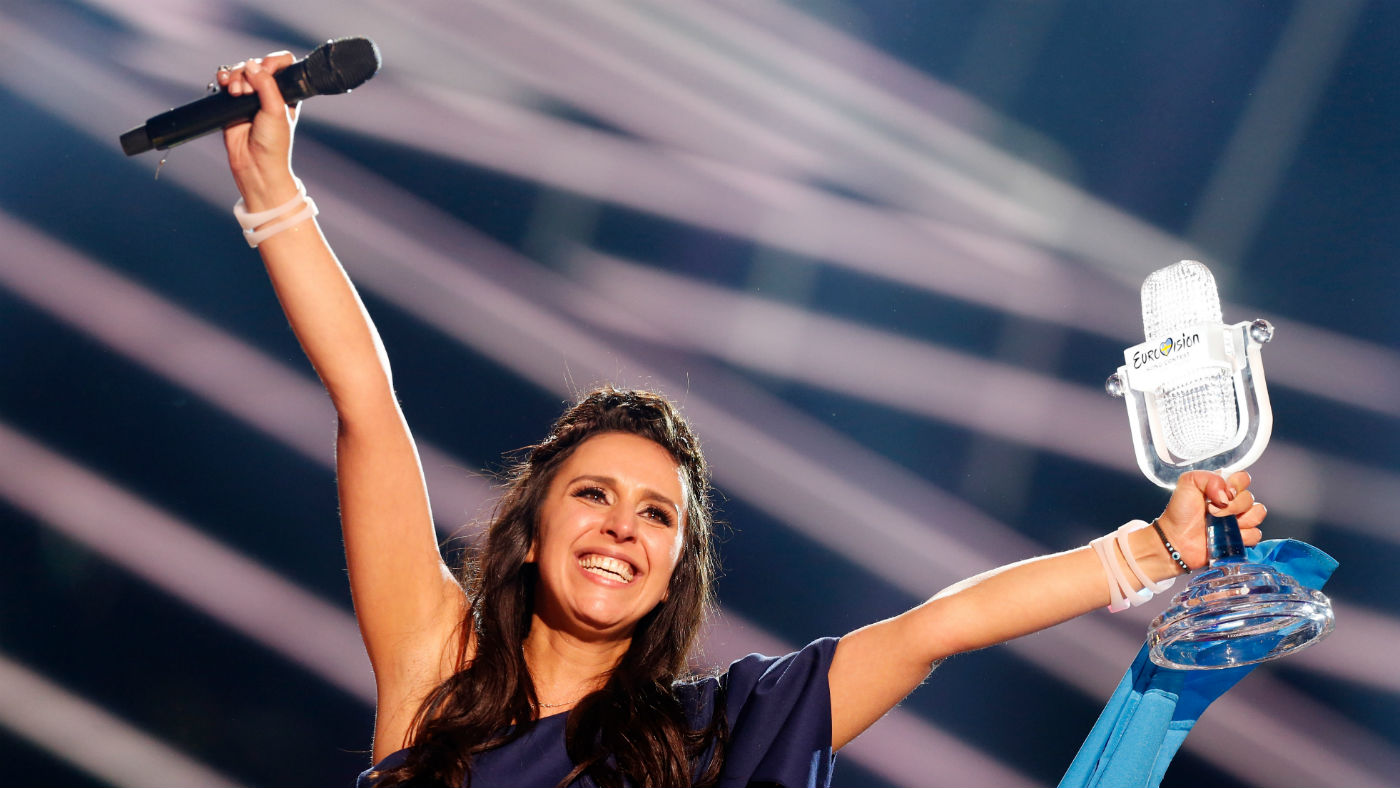Ukraine accused of politicising Eurovision
This year’s entry in doubt after three acts refuse to represent the country following gagging order

A free daily email with the biggest news stories of the day – and the best features from TheWeek.com
You are now subscribed
Your newsletter sign-up was successful
Ukraine has pulled out of this year’s Eurovision Song Contest after three consecutive acts refused to represent the country following a row over an anti-Russian gagging-order.
Anna Korsun, known as Maruv, had been tipped to win the event in Tel Aviv in May after her song was overwhelmingly chosen in a public vote over the weekend.
Trouble started when the country’s national broadcaster, UA Suspilne Movlennya, gave the 27-year-old just 48 hours to cancel a planned appearance in St Petersburg and transfer the rights to the song she was due to perform at Eurovision from a Russian music label.
The Week
Escape your echo chamber. Get the facts behind the news, plus analysis from multiple perspectives.

Sign up for The Week's Free Newsletters
From our morning news briefing to a weekly Good News Newsletter, get the best of The Week delivered directly to your inbox.
From our morning news briefing to a weekly Good News Newsletter, get the best of The Week delivered directly to your inbox.
“Breaches of contract would have incurred fines and compelled her to pay the cost of her own performances at Eurovision,” says the Daily Telegraph.
She claims she was less concerned by the cancellation of the concerts in Russia than clauses forbidding her from improvising on stage or talking to journalists without the broadcaster’s prior permission, arguing they would have made her a mouthpiece for Ukrainian propaganda.
“I am a musician, rather than a tool of the political stage,” she wrote in a statement announcing her withdrawal.
Her response drew a sharp rebuke from the Ukrainian Culture Ministry, which said only “patriots who are aware of their responsibility” should be allowed to sing for Ukraine at the annual pop contest while “thousands of heroes are dying for Ukraine’s territorial integrity”.
A free daily email with the biggest news stories of the day – and the best features from TheWeek.com
Russia has been engaged in a brutal conflict in eastern Ukraine since the annexation of Crimea by Kremlin-backed forces in 2014.
It is believed to have cost the lives of more than 13,000 people and has also provoked a proxy culture war between Kiev and Moscow, with “artists with ties to Russia becoming more controversial in recent years”, says The Independent.
In a bid to get its entry back on track, the national broadcaster approached vocal harmony group Freedom Jazz, who came second in the public vote, and dance act Kazka, who placed third, both of whom rejected the offer to take Maruv's place.
Dr Paul Jordan, who earned a PhD with a dissertation on Ukraine's participation in Eurovision, told BBC News: “It’s a bit of a mess. They’ve gone from potentially winning the contest to probably not appearing on stage at all.”
Radio Free Europe says “it wouldn’t be the first time politics has reared its ugly head at Eurovision, despite the best efforts by the pop-music contest's organizers to keep it out”.
Ukraine hosted the competition in 2017 and barred Russia’s representative from entry.
“Ironically, the row could hand Russia victory in this year's contest,” says the BBC. “The country will be represented by homegrown superstar Sergey Lazarev, who took third place at Eurovision 2016, in a shock defeat to... Ukraine.”
“Losing was a very bitter pill to swallow for the Russians,” says Jordan, “but losing to Ukraine was even more unacceptable.”
"They're desperate to win and I think they're out for revenge. So my money's on Russia, without even hearing the song”.